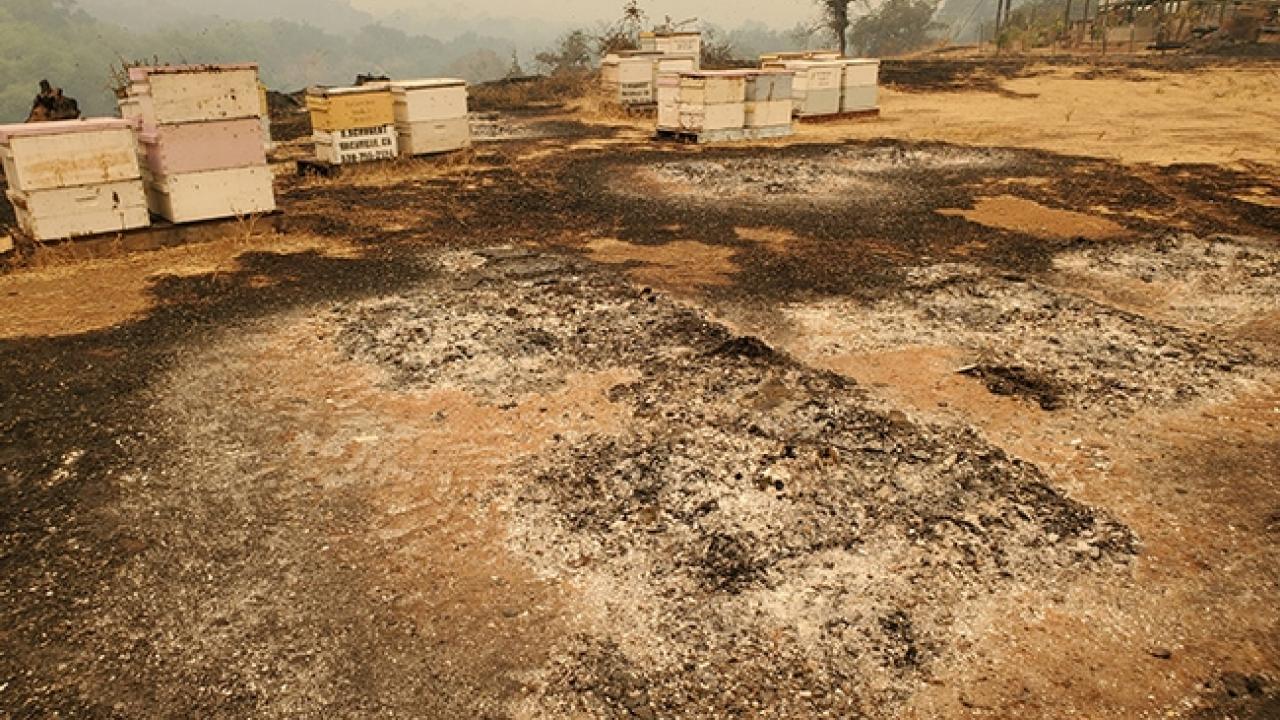
Fires and Honey Bee Colories
Smoke fills the air. What we here in Davis and Sacramento breathe is considered unhealthy. As fires rage through Northern California and much of the West stripping our land of trees and homes, many have been thinking about the animals some of whom escape danger and others who cannot. Some of you may have thought about the beekeepers and what happens to the honey bees that are sprinkled throughout the countryside collecting nectar and producing wildflower honey.
From putting out the fires to caring for injured people and animals, to providing emergency housing for colleagues and their families — UC Davis is responding to the horrific spate of wildfires in a big way. Read: UC Davis Wildfire Response. Though we are continuing to take action, some things cannot be saved. Many of our local commercial beekeepers move their apiaries into the foothills around Winters and heading south to Vacaville. Some stretch along Highway 128 and into Napa. Most of them are within the area much of our nation now knows as the LNU fire – a complex of lightning strikes throughout our region. Sadly, various apiaries (clusters of 40 or so hives and sometimes more) are burned out. Beekeepers simply cannot overcome the logistics of trying to save all of their hives. Losses in these wildfires are inevitable.
In the case of the LNU fire, two local operations were completely devastated. There is nothing left at all. Kathy Keatley Garvey, writer of the Bug Squad has detailed their stories. Carolyn Yelle of Pope Valley Queens and Clay Ford of Pleasant’s Valley Honey Company. Both of these beekeepers hope to rebuild. Information about how to help them pursue their dreams is available within the linked articles.
